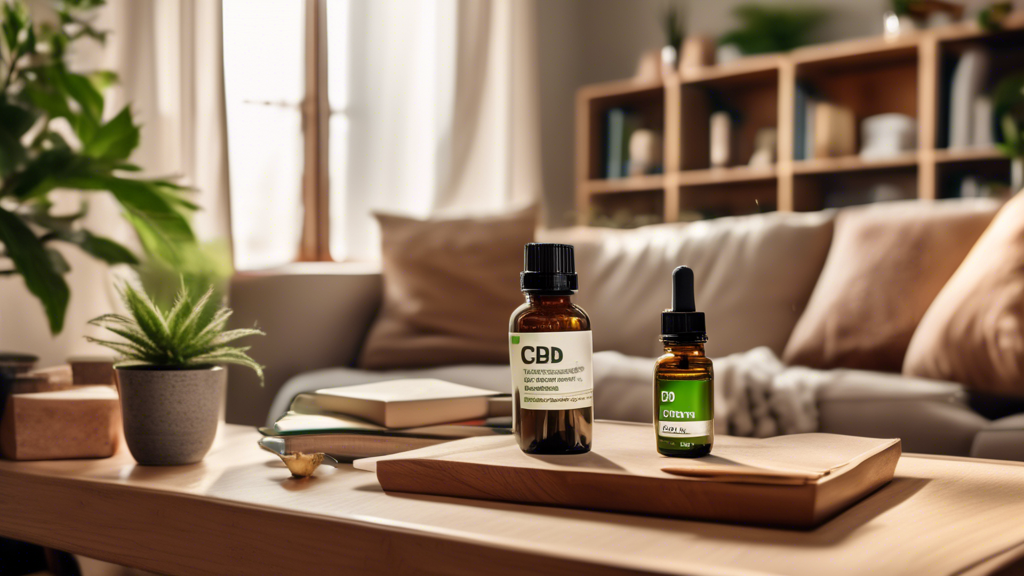
Understanding CBD Oil: Benefits, Uses, and Safety
Share
In recent years, CBD oil has surged in popularity, touted for its numerous health benefits and versatile uses. Derived from the cannabis plant, CBD oil offers a natural alternative for various health and wellness needs. However, navigating the world of CBD can be daunting. Let's dive into the essential aspects of CBD oil, including its benefits, common uses, and safety considerations.
What is CBD Oil?
CBD, or cannabidiol, is a compound found in the cannabis plant. Unlike THC (tetrahydrocannabinol), CBD is non-psychoactive, meaning it doesn't produce the high associated with marijuana. CBD oil is typically extracted from hemp, a variety of cannabis with low THC levels. It is then diluted with a carrier oil, such as coconut or hemp seed oil, to create the final product.
Health Benefits of CBD Oil
1. Pain Relief
One of the most well-known benefits of CBD oil is its analgesic (pain-relieving) properties. Studies have shown that CBD may help reduce chronic pain by impacting endocannabinoid receptor activity, reducing inflammation, and interacting with neurotransmitters. For example, research indicates that CBD may be effective in managing neuropathic pain, as well as conditions like arthritis.
2. Anxiety and Depression
CBD oil's potential in reducing anxiety and depression has made it a popular choice among those seeking mental health support. According to the National Institute on Drug Abuse, CBD has shown promise in reducing stress and improving sleep in individuals with anxiety disorders. Additionally, some studies suggest that CBD can work similarly to antidepressants by enhancing serotonin levels in the brain.
3. Neuroprotective Properties
Research indicates that CBD may have neuroprotective properties, making it a potential aid for various neurological disorders. For instance, studies have shown promising results in using CBD to treat epilepsy and multiple sclerosis. The FDA has even approved a CBD-based drug called Epidiolex for treating severe forms of epilepsy, underscoring its potential efficacy and safety.
4. Acne Reduction
CBD oil may benefit skin health, particularly in reducing acne. Its anti-inflammatory properties and ability to regulate sebum production make it a promising candidate for skincare. According to a study, CBD exerts anti-inflammatory actions on sebocytes, the cells that produce sebum, thereby helping manage acne.
Uses of CBD Oil
1. Topical Applications
Topical CBD products, such as creams, balms, and lotions, are applied directly to the skin. These products are primarily used for localized pain relief, inflammation reduction, and skin conditions like eczema and psoriasis. Topical CBD is preferred by individuals who seek targeted relief without ingesting the oil.
2. Oral Consumption
CBD oil can be taken orally through tinctures, capsules, or edibles. This method allows CBD to enter the bloodstream and provide more systemic effects. Oral consumption is commonly used for managing anxiety, sleep disorders, and chronic pain conditions. It's important to follow dosage guidelines to avoid any adverse effects.
3. Sublingual Administration
Sublingual CBD involves placing oil drops under the tongue, where it is absorbed into the bloodstream through the mucous membranes. This method ensures rapid onset of effects and is often preferred for its efficiency. Sublingual administration is ideal for those seeking quick relief from symptoms like anxiety or acute pain.
Safety and Side Effects
1. Potential Side Effects
While CBD is generally well-tolerated, some individuals may experience side effects. These may include dry mouth, diarrhea, reduced appetite, drowsiness, and fatigue. It's crucial to start with a low dose and gradually increase to determine how CBD affects your body.
2. Drug Interactions
CBD can interact with certain medications, particularly those metabolized by the liver's CYP450 enzymes. This can alter the drug's effectiveness or increase the risk of adverse reactions. It's essential to consult with a healthcare provider before using CBD, especially if you're taking prescription medications.
3. Quality and Purity
Not all CBD products are created equal. The quality and purity of CBD oil can vary significantly between brands. It's important to choose products that are third-party tested for contaminants and accurately labeled for CBD content. The FDA offers guidelines on selecting safe and effective CBD products.
Conclusion
CBD oil presents a promising therapeutic agent with a wide range of potential benefits and uses. From pain relief to anxiety management and neuroprotection, CBD's versatility makes it a valuable addition to the wellness landscape. However, it's essential to approach CBD use with caution, adhering to safety guidelines and consulting healthcare professionals when necessary.
For more information on CBD oil and its various applications, consider exploring reputable sources and staying updated with ongoing research. Your journey with CBD can be a transformative part of your holistic health approach when done correctly.
Just Vitamins is exploring the opprotunity to add CBD products to our listings. Tell us your opinions here
